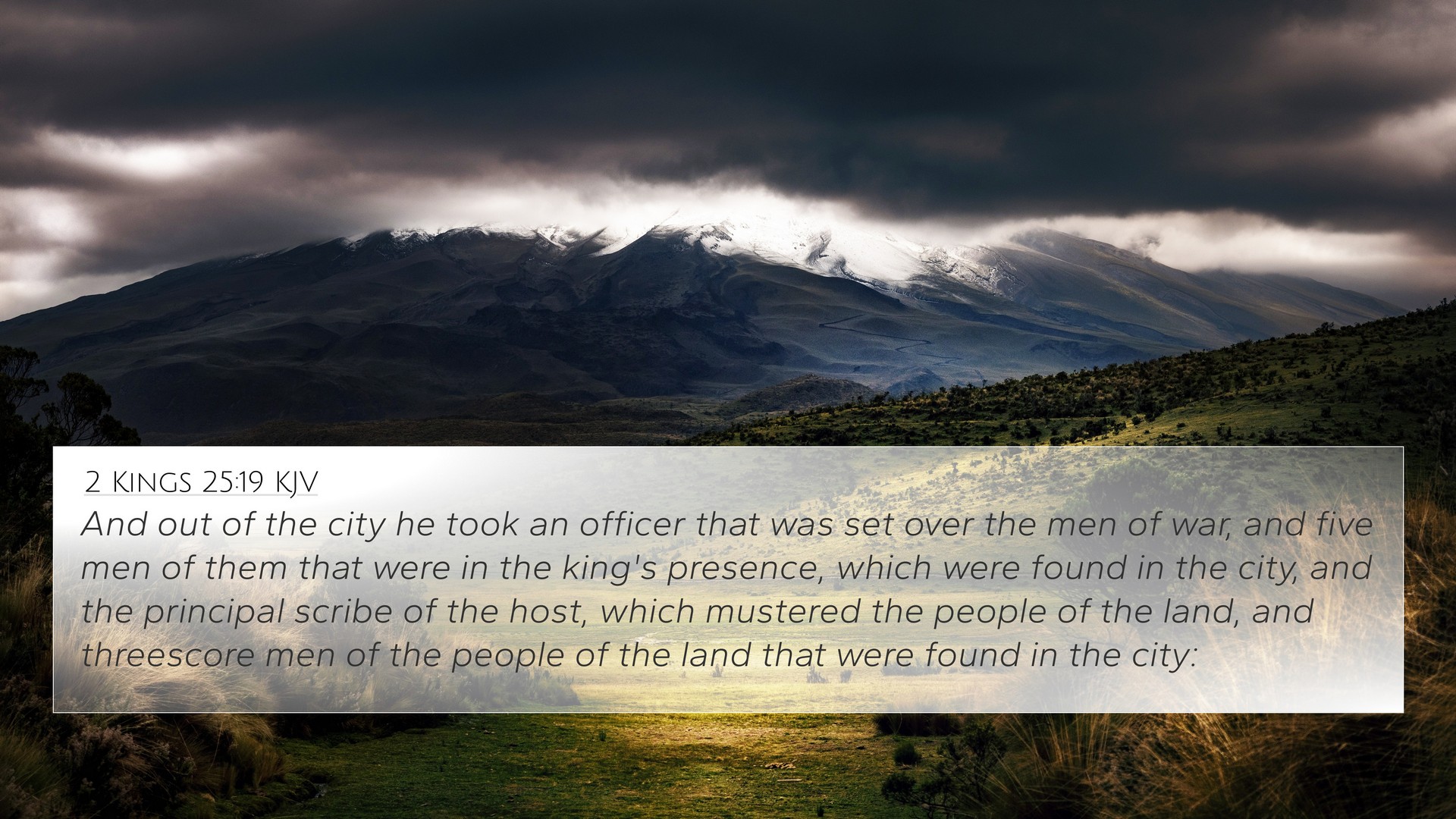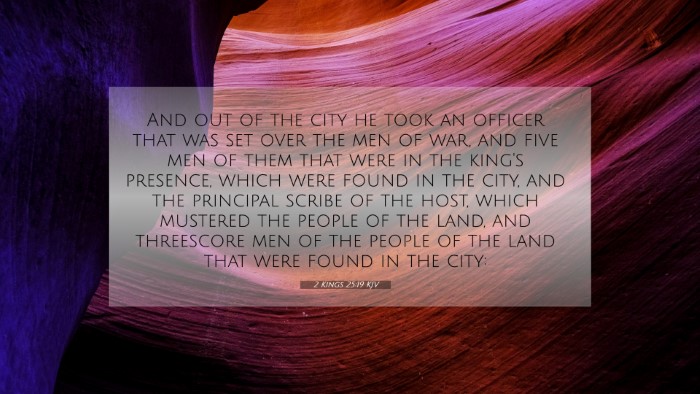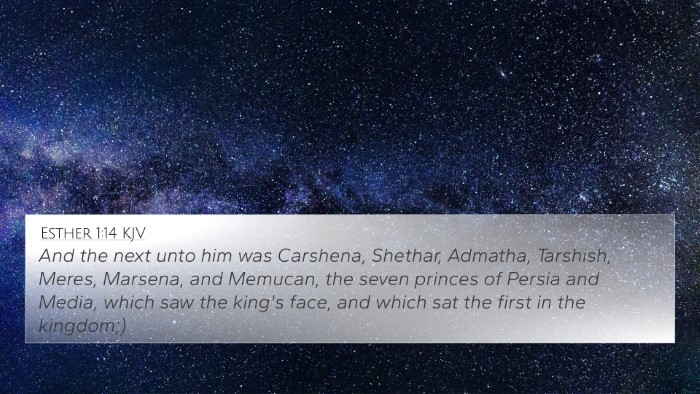Understanding 2 Kings 25:19
Verse Context: 2 Kings 25:19 states, "And he took the chief governor, which was over the men of war, and the second man of the city, and the principal scribe of the host, and the people of the land, which were found in the city, and brought them to the king of Babylon to Riblah." This verse comes at the culmination of the Babylonian siege of Jerusalem and marks the moment of judgment upon the city and its leaders.
Commentary Insights
Matthew Henry: Matthew Henry highlights the severity of the judgment faced by the leaders of Jerusalem. He emphasizes that the capture of the chief governor and principal scribe symbolizes the loss of leadership and the integrity of the nation. The act of bringing these leaders before the king of Babylon signifies their defeat and the consequences of rebellion against God. Henry interprets this as a warning about the downfall of those who oppose divine authority.
Albert Barnes: According to Albert Barnes, this passage illustrates the implications of Jerusalem's sin and the fulfillment of prophetic warnings. The gathering of significant leaders to face the king of Babylon demonstrates God’s hand in history and His control over nations. Barnes connects this moment to earlier prophetic declarations found in the book of Jeremiah, showing how these events were not mere coincidences but orchestrated outcomes of divine judgment.
Adam Clarke: Adam Clarke elaborates on the significance of the specific titles listed in the verse. He suggests that their capture was not only a military victory but also a psychological blow to the people of Jerusalem. Clarke notes that the leaders, who were supposed to protect and guide the people, failed to fulfill their responsibilities. This failure had dire consequences, leading to their capture and eventual execution.
Thematic Connections and Cross-References
The events described in 2 Kings 25:19 resonate deeply with various themes found throughout Scripture. Here are some bible verse parallels that speak to the same themes of leadership, judgment, and the consequences of sin:
- Jeremiah 39:5: This verse depicts the direct fulfillment of God's judgment as the Babylonian army overtakes Jerusalem.
- 2 Chronicles 36:17-20: This passage elaborates on the destruction of Jerusalem and the exile of its leaders, closely relating to the events in 2 Kings 25.
- Ezekiel 12:13: Describes the fate awaiting Zedekiah during the Babylonian siege, highlighting God's sovereignty over nations.
- Isaiah 39:6-7: Prophetic insights into the captivity that awaited the inhabitants of Jerusalem, reinforcing themes of necessary judgment.
- Lamentations 2:9: This verse reflects on the sorrow and consequences of the fall of Jerusalem, emphasizing the fulfillment of God's word.
- Matthew 23:37-39: The New Testament connection to Jerusalem's rejection of God's prophets, leading to lamentation and impending judgment.
- Romans 1:18: A foundational text about God's wrath against unrighteousness, paralleling the judgment seen in 2 Kings 25:19.
Reflection on Leadership and Judgment
The capture of key leaders in 2 Kings 25:19 serves as a profound illustration of the theme of accountability in biblical leadership. Leaders are called not just to rule, but to guide according to divine principles and justice. Failing to adhere to these responsibilities brings about severe consequences, both for the leaders and the communities they represent.
Utilizing Cross-References for Deeper Understanding
For those looking to deepen their understanding of scriptures like 2 Kings 25:19, utilizing a bible cross-reference guide can be invaluable. By exploring related verses, readers can see how biblical themes interconnect and build a more comprehensive picture of God's dealings within history. Tools such as a Bible concordance or bible reference resources can aid in identifying these links effectively.
Conclusion
In summary, 2 Kings 25:19 is a pivotal verse that highlights God's judgment upon Jerusalem and its leaders. The insights drawn from public domain commentaries help uncover the gravity of this moment in biblical history. Through cross-referencing biblical texts and exploring thematic connections, one can appreciate the rich dialogue that exists within the scriptures, leading to a better understanding of their meanings and implications for readers today.



